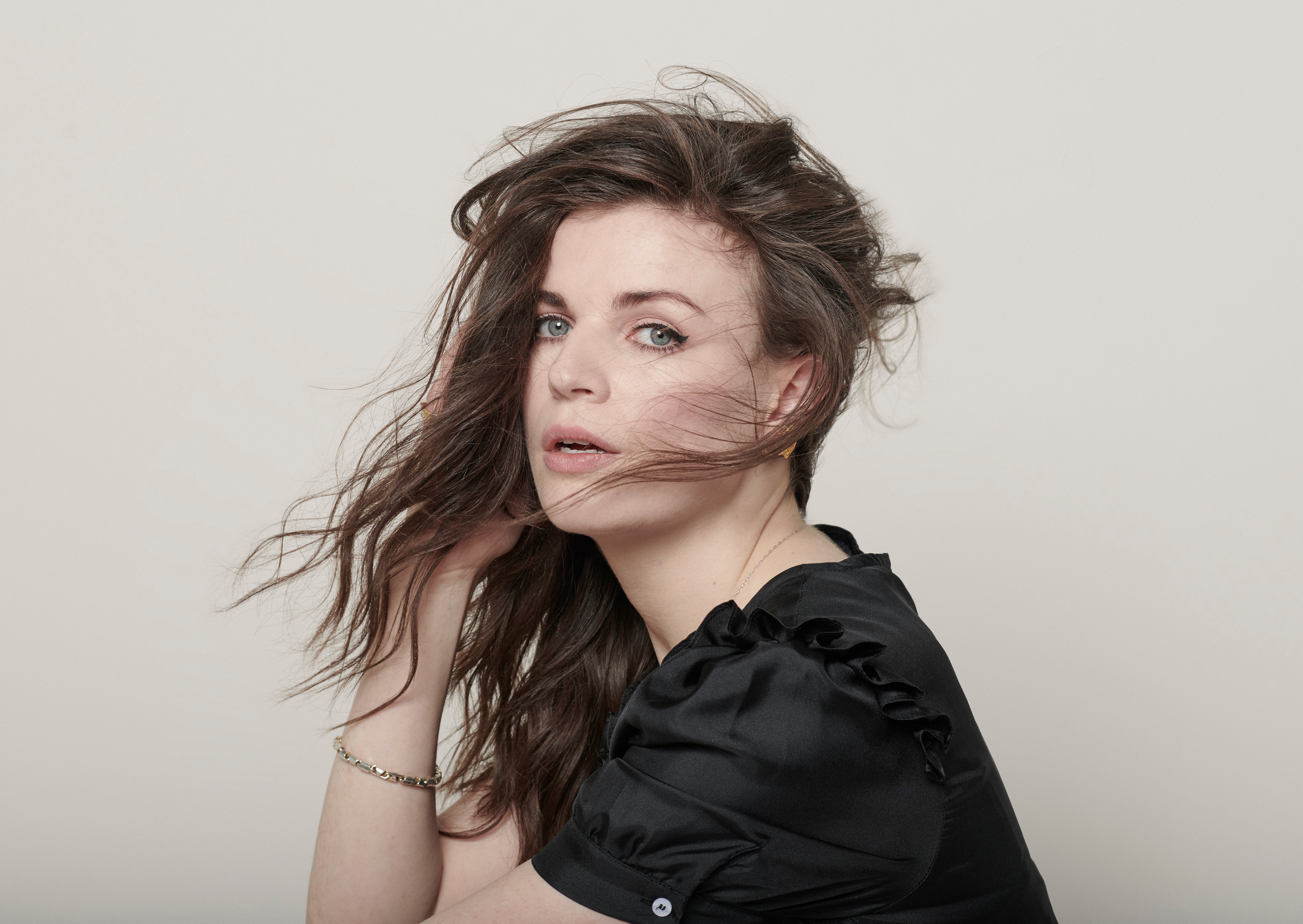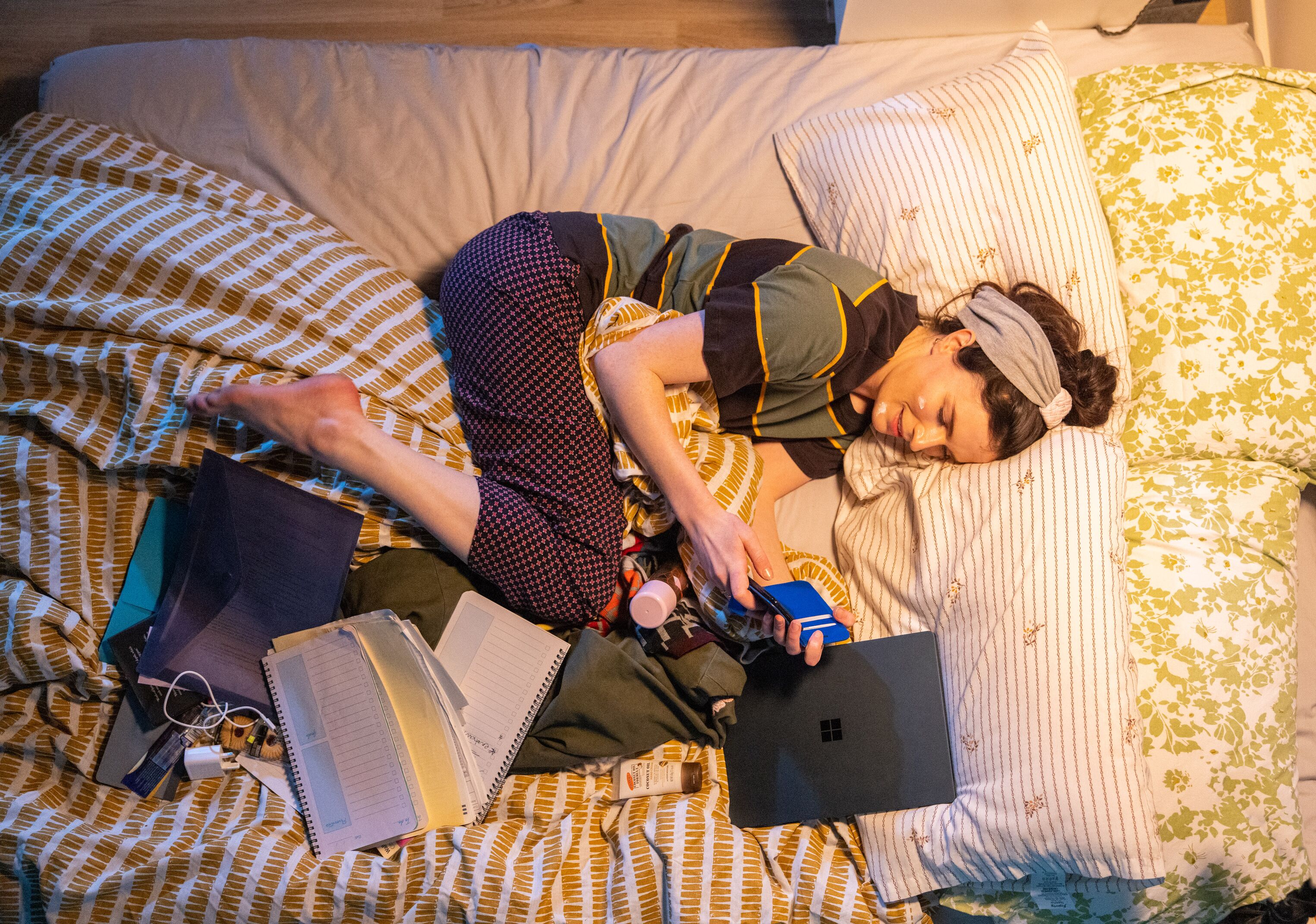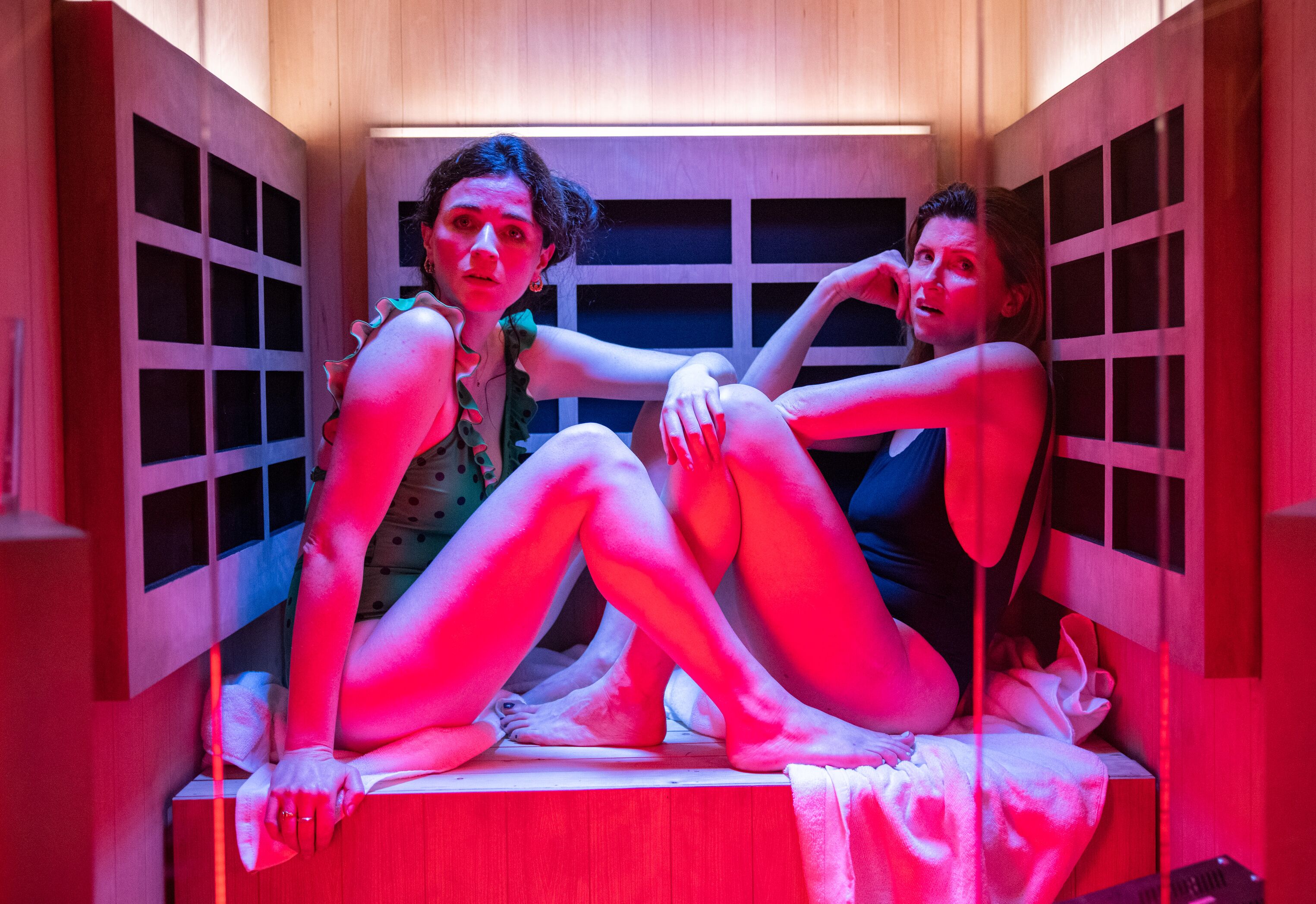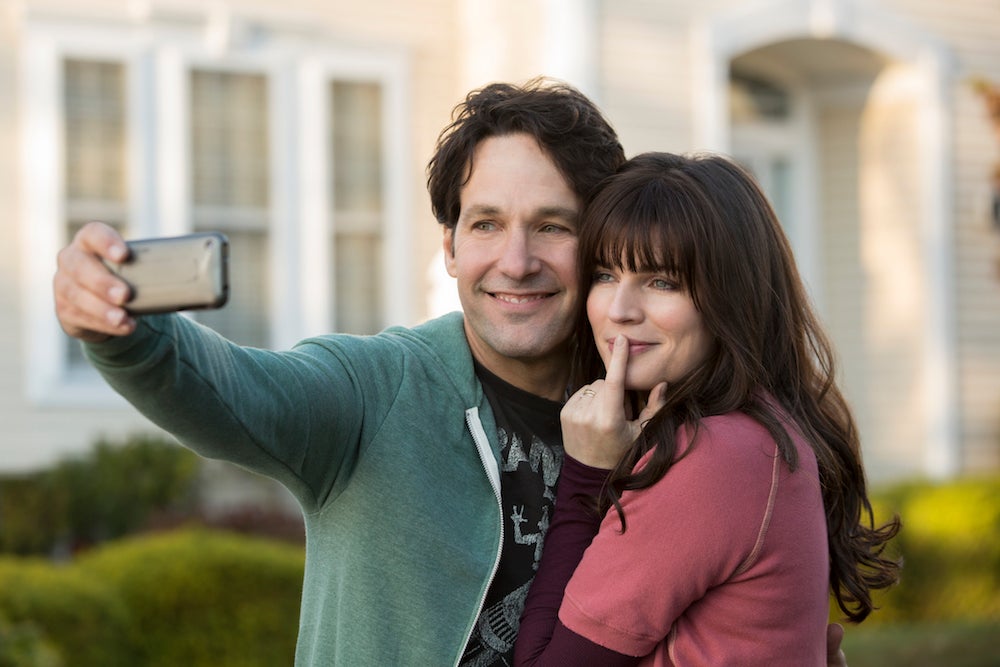Aisling Bea: ‘A lot of top female comedians have absent or dead fathers – look into that, scientists’
The Irish comedian talks to Alexandra Pollard about the new series of ‘This Way Up’, making off-colour jokes on stage, and growing up with no men in her life


Your support helps us to tell the story
From reproductive rights to climate change to Big Tech, The Independent is on the ground when the story is developing. Whether it's investigating the financials of Elon Musk's pro-Trump PAC or producing our latest documentary, 'The A Word', which shines a light on the American women fighting for reproductive rights, we know how important it is to parse out the facts from the messaging.
At such a critical moment in US history, we need reporters on the ground. Your donation allows us to keep sending journalists to speak to both sides of the story.
The Independent is trusted by Americans across the entire political spectrum. And unlike many other quality news outlets, we choose not to lock Americans out of our reporting and analysis with paywalls. We believe quality journalism should be available to everyone, paid for by those who can afford it.
Your support makes all the difference.“I remember listening to someone talking about depression on the radio, and God love them, but it was so depressing,” says Aisling Bea, horizontal on her sofa in north London. “I was like, ‘God, that could really ruin your day.’”
So she hatched a plan. Adamant that tackling depression doesn’t have to be depressing – as long as it “leaves you something to sit with” – the Irish comedian created This Way Up, the superb Channel 4 comedy drama about anxiety, loneliness, sisterhood, codependency and toaster waffles. Bea had already made a name for herself on the stand-up circuit, having won the illustrious So You Think You’re Funny competition at the Edinburgh Fringe in 2012, and on British panel shows, where she rose above the dominating male egos to offer a mix of goofiness and sharp wit.
Now, having starred alongside Paul Rudd in the Netflix dark comedy series Living With Yourself, she is part of a new wave of comic auteurs – women who are finally being given the space to tell their own stories. I am hesitant to lump them all together, but as Bea herself once put it, women like Phoebe Waller-Bridge, Michaela Coel and Bea are like “athletes who’ve only been allowed to walk across the road”.
Bea wrote This Way Up entirely on her own. She stars in it, too, as Aine, who we meet checking out of a mental health facility and complaining about the lack of jacuzzis. Aine spends most of the first series worrying the hell out of her sister Shona (Sharon Horgan), tutoring a French boy called Etienne while developing an inconvenient crush on his father, and desperately trying to avoid being alone with her own thoughts.
In series two, which arrives on Channel 4 on 14 July, she has semi-committed to getting better – to living – though she’s still got that defensive streak. “I’m a good teacher, and I’m kind, and I might not have that much money and sometimes get the blues or whatever,” she says, “but some people are the lads who buy the pesticides that kill bees or are rapists or run dodgy big pharma companies.” She has a point.
“If in series one you’re in the war, then series two is peace – whatever peace looks like,” says Bea. It’s something she heard from the comedian Jordan Carlos, who appears with her in the forthcoming Home Alone reboot, and it stuck. “Whether you’ve won the battle or lost, series two is peace. But sometimes peace can be trickier to write and be in. What does it look like when you’re not at death’s door, but when you’re recovering? It’s kind of like, ‘Oh yay, I made it through that. But s***, I have to live now.’”
If This Way Up strikes a tone that is somewhere between funny and desperately sad, it’s because “I don’t know how else to be but between the two”, says Bea, readjusting the cushion tucked behind her neck. “That’s where my humour is. I grew up in a household where we knew someone was dead.” Bea’s father Brian died when she was three – though she didn’t find out that it was by suicide until a decade later. She took the stage name “Bea” (her real surname is O’Sullivan) in tribute to him, and when she won the Breakthrough Talent Bafta last year, she dedicated it to her dad – and to her enemies, obviously, “for keeping me thirsty”.
“We’d have jokes,” says Bea of her childhood without him, “like if a door bangs, we’d say, ‘Father?’” She yells the word in histrionic horror. “In that, you’re essentially saying, ‘Ha ha, that could be the ghost of the man who died when you were a kid.’ But in the moment it’s very funny.” Besides, gallows humour is in the Irish blood. “In Ireland, tragedy and comedy don’t sit opposite each other – they’re very much side by side,” she says. “That’s how people relate.”
To the untrained eye, the 37-year-old – who started our conversation upright before toppling over with the assurance that “I’m not giving birth or anything” – is indistinguishable from Aine. They have the same quippiness, the same warmly mocking tone. She is rightly confused that my curtains are closed at the height of summer – “Are you alright? You look like you’re in the nighttime” – and when I take off my jumper, she jokes about doing the interview in our bras. No matter how dark the subject matter gets, she will slip in a joke.

Watch Apple TV+ free for 7 days
New subscribers only. £8.99/mo. after free trial. Plan auto-renews until cancelled

Watch Apple TV+ free for 7 days
New subscribers only. £8.99/mo. after free trial. Plan auto-renews until cancelled
Maybe that’s why Bea – who started doing stand-up when she was at The London Academy of Music and Dramatic Art and a casting director pointed out that she was really bloody funny – was determined that the people in her show should be funny too. Not just to the audience, but to each other. “I missed seeing people who are funny in the scene and people laugh,” she says. Too often, when someone cracks a joke in a comedy, “people go, ‘She’s so weird...’ And I’m like, ‘That’s not what happens to me. I make people laugh. People absolutely think I’m weird without a doubt, but where are the women who are the jokers?’”

Someone at Mind, the mental health charity, once told Bea that the people they encountered were often described as the funniest person in the room. “It’s not the mask of the clown – it’s part of you,” says Bea. “You can be 17 things at once. What about the functioning anxiety people who are still a good craic? And you might never fix it. But that’s just a truth of your existence.”
In This Way Up, no-one finds Aine funnier – or more exasperating – than her sister Shona. “Sharon laughs very freely,” says Bea of her co-star, “because she loves funny people, and I love making people laugh. I think that’s what gets a lot of the darker language and stuff through.”
Was that relationship inspired by real life? “Yeah, I mean I grew up in the countryside in a family full of sisters,” says Bea. She had a younger sister, Sinead; her mother had six. “They’re all like me – we’re all alpha women who don’t fit into particularly gendered female roles. My granny was on horseback leading protest marches wearing trousers; my mother is a retired jockey; my aunt worked as one of the few women in business in Ireland in the Eighties; I ended up in comedy. When I think about gender and all the discussions now, I’m kind of like, fair f***s to the old family. We’ve been doing it a lot longer than we knew, through accidental circumstances.”
In fact, Bea “didn’t grow up with any men in my life at all”. When she wasn’t with her family, she was at her all-girls Catholic school in County Kildare. Even the teachers were all women. “It was almost like gender didn’t exist,” she says. “I’ve been bogged down more by gender later in life than I have been served by it.”

She has noticed something, though. “When you look at a lot of female comedians at the top of our game, a lot of us have absent or dead fathers. So go look into that yourself, scientists. I don’t have the time.” She can’t help but probe a little, though. “There was no role which traditionally might have been the funny dad, and I got to take on that role. At no point did I literally hear the sound of men speaking and think, ‘That’s my sign to stop.’ It doesn’t go in. It just doesn’t read in my head as a sound that should make me stop speaking.” She pauses, then adds, deadpan: “Which is not always a good thing.”
It was at university that the bubble burst. Bea went to Trinity College Dublin, joined a mostly male sketch group, and was constantly overlooked. “I just couldn’t work it out,” she says. “Only years later I look back and I’m like, ‘Oh they didn’t even know that they weren’t taking me in.’ But it’s not like it was active on their part. None of us were used to our… cultures in a sense. I do think gender can be like a culture that you have to get used to. You either live in a multi-cultured house of genders or you don’t, and you have to work out what’s offensive, what’s wrong, what’s actually discrimination or what’s actually just your personality and has nothing to do with your gender. That’s what life for me has been about working out.”
It’s why, with This Way Up, Bea tries to “have empathy for the other side – because there but for the grace of God go I. If you’re to pick up on every slight, f***ing hell, we’d be here all day. What is it actually, your job as a human, to let go of? And I don’t totally know the answer. I think at the moment, I’m definitely in a space where I’m like, ‘What do I have to move away from? What do I need to put boundaries around? What do I need to get into?’.”
The other day, someone sent Bea a video of her best bits from the panel show 8 Out of 10 Cats. In one clip from about three years ago, she joked about a flasher on the New York subway. “And he was just there holding out his dick,” she explains now, “and we started laughing, and he looked offended and turned away. And we were like ‘Sorry!’ And that was the funny story.” She’s quiet for a second – a rare occurrence. “But I’m like, ‘Oh my God, we were young girls on the subway.’ It didn’t affect me that much at the time. It wasn’t a trauma. But we’re in a space where we’re seeing how all of those things connect together, and it’s OK to have to retire those.”
She has no time for the idea that “woke” culture is ruining comedy. “I think some people get so scared of like, ‘Oh so now you don’t tell that anymore’,” she says. “Yeah, that has to happen all the time. Know when to tell a story.” She is sceptical, too, of people excusing offensive jokes by saying it was a different time. “In that different time,” she says, “the people who were sad and getting affected had no voice to tell you. And that’s what you have to realise.”
What does concern her, though, is the ability of social media to amplify anything that you say on stage – in bad faith and out of context. It was worrying her Living With Yourself co-star Paul Rudd when I spoke to him in 2019. “You hear some comics that used to play colleges all the time,” he said. “They don’t want to do that any more because there’s no room for any kind of daring comedy. Everybody’s gonna be pissed off about something.”

I don’t get the sense that Bea would go quite that far, but she does feel that comics deserve the right to misfire. “To do new material as a stand-up, you have to go on stage and get things wrong,” she says. “It’s OK to make an off-colour joke on stage and go, ‘Hey, not that one.’ But that stuff now gets recorded and tweeted and published straight away. You will never see the first drafts of my show. But for stand-up as a craft, there have to be safe places for first drafts. And it feels like that’s getting smaller and smaller.”
Take this interview, she says. “I get no control over your take on this. You get to create what you decide people read and how I’m taken. When journalists complain about people being really boring or shutting down, it’s probably because of that.” I’ll consider myself lucky, then, that Bea hasn’t become one of those people yet. I find it hard to imagine she ever will.
Our time’s up – Bea has another interview to get to. “I’m dating someone else, Alex,” she says. “Who knows, it might be daytime where they are.”
‘This Way Up’ series two starts on Channel 4 on 14 July; you can watch series one on All4 now



Join our commenting forum
Join thought-provoking conversations, follow other Independent readers and see their replies
Comments